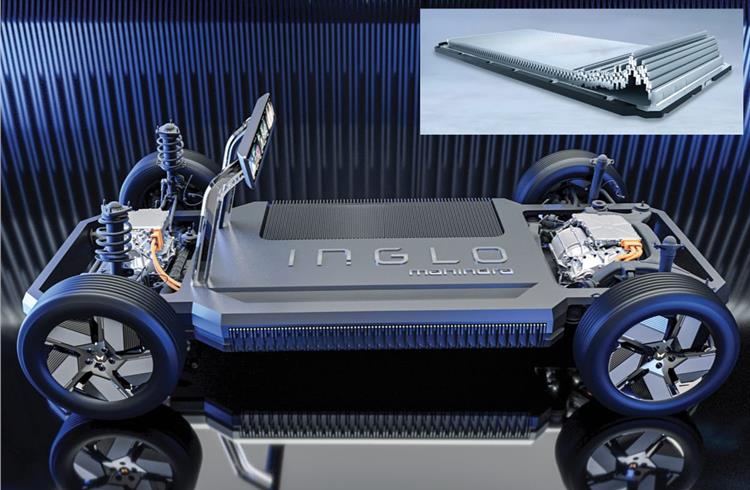Mahindra & Mahindra (M&M) is gearing up to introduce its ‘Born Electric’ electric vehicle range, featuring cutting-edge BYD blade cells and advanced Valeo electric motors. With a strategic vision of launching more than 5 electric models within the next three years, M&M is prioritizing a robust supply base for battery cells to meet its ambitious product timelines.
To ensure a reliable supply chain, M&M has partnered with BYD and Farasis, focusing on diversifying battery cell sources. This move is aimed at averting potential supply disruptions, a concern heightened post-Covid-19.
While a year ago, M&M entered into a deal with Volkswagen to source EV components, including battery cells and electric motors, for its upcoming INGLO-based vehicles, the partnership encountered delays. Industry insiders suggest that the supply of these critical components from VW’s MEB architecture might not materialize until 2026-27. In contrast, Mahindra’s debut EV, the .e8 model, is slated for a late 2024 launch.
Amid these challenges, M&M explored alternate battery suppliers alongside its collaboration with VW. The automaker confronted battery supply issues for the XUV400 due to discontinued NMC 532 cathode pouch cells from LG Chem. However, Mahindra managed to secure a continuous battery supply from Chinese battery manufacturer Farasis, which produces cells with similar chemistry and construction as LG Chem’s.
While Farasis is set to provide batteries ranging from 32kWh to 40kWh for the XUV400, BYD will contribute 60kWh and 80kWh batteries for the forthcoming ‘Born Electric’ models. Valeo, the French component supplier, will deliver the electric motors powering the .e8.
M&M’s engagement with VW has proven more intricate than expected due to various procedural aspects. Operating under a non-exclusive arrangement with VW, M&M concurrently initiated discussions with BYD.
The ‘Born Electric’ lineup was conceptualized with 60kWh and 80kWh battery packs, both employing LFP technology. While VW was expected to supply the 60kWh pack, BYD’s blade cell technology enabled it to offer the 80kWh pack, eventually securing the entirety of the battery supply from launch. This decision was prompted by delays on VW’s side, with BYD’s technology alignment proving pivotal.
BYD’s blade cell technology is also set to feature in the Maruti YY8, scheduled for a concurrent release. Importantly, due to current geopolitical tensions, BYD has no immediate plans for cell manufacturing in India, necessitating short-term imports from China.
Mahindra’s steadfast commitment to its electric vehicle business, with over Rs 10,000 crore invested, has garnered attention from private equity investors like Temasek and British International Investment. This drive toward technological innovation and strategic partnerships underscores Mahindra’s pursuit of sustainable mobility solutions.



